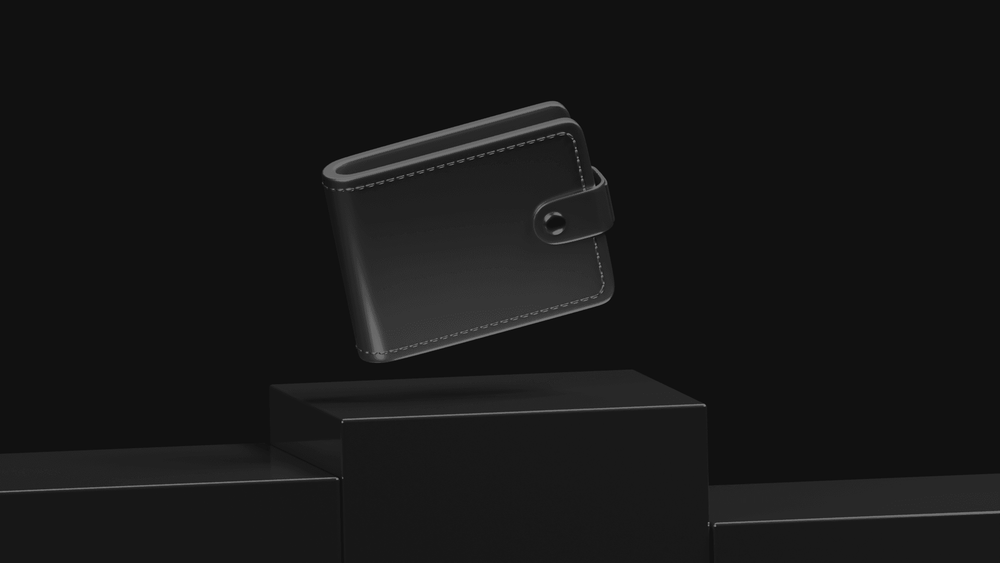Discover Top-Rated Crypto Wallets: Full Guide and Tips from Industry Experts

Storing crypto today takes more than just downloading an app and demands real security and control. The wallet market is so crowded that it’s easy to get lost among dozens of options, each with its own protection level and features. A lost private key, a hacked hot wallet, or a blocked account can cost you an entire fortune.
In this guide, you’ll discover the best crypto wallets to minimize those risks, the key differences between hot and cold storage, and how to choose the option that keeps your assets fully protected.
Getting Started with Crypto Wallets
If you hold crypto but aren’t sure how your funds are actually protected, then it’s time to find out.
A crypto wallet isn’t just a place to store coins. It’s your personal gateway to assets on the blockchain. Lose your private keys, and your crypto is gone for good. That’s why it’s essential to understand the different wallet types, how they work, and what sets them apart.
Once you get the basics, you’ll be able to choose not just a convenient option, but a truly reliable wallet and see why some make it to the top lists, while others lose user trust.
The Ultimate Checklist for Choosing a Crypto Wallet
A crypto wallet works best when it matches your goals and habits, not as a universal solution. To make the right choice, focus on a few core factors:
- Wallet type. Hot and cold wallets differ by their connection to the internet. Hot wallets are convenient for everyday use, while cold ones are ideal for long-term storage. Many users combine both for maximum flexibility and protection
- Control over keys. Non-custodial wallets give you full ownership of your private keys, minimizing access risks. Custodial options are simpler to manage, but protection responsibility shifts to the service provider
- Compatibility. Make sure the wallet supports the blockchains and tokens you plan to use
- Security. Check that the wallet includes encryption, 2FA, and multiple protection layers
- Easy use. A clean design, mobile app, intuitive interface, and integration with DeFi or NFTs make a wallet much more practical
When choosing a crypto wallet, skip flashy promises and focus on trusted, reputable solutions with solid support and an active community.
Best Desktop Crypto Wallets
Desktop wallets are installed directly on your computer, giving you a protected connection to the blockchain and greater protection than most online services. You also maintain full access to your assets without relying on external platforms.
Exodus
One of the most popular desktop crypto wallets, Exodus supports over 260 digital coins as of October 2025 according to a review on BITCOURIER, offers built-in swaps and reward features, and has an interface that even beginners find intuitive.
Bitcoin Core
This wallet functions as a full Bitcoin node, downloading the entire transaction network history. It requires substantial disk space but offers complete control over your funds and a high privacy level.
If you manage your digital assets from a laptop or PC, a desktop wallet strikes the perfect balance between speed and control. Just make sure to keep backups of your private keys in a protected location and update your software regularly.
Top Mobile Crypto Wallets
Mobile wallets are the go-to choice for anyone who wants to manage crypto on the move. The best mobile crypto wallets today combine a clean interface, support for multiple networks, and advanced features from staking to NFT and DeFi access.
Trust Wallet
One of the most popular mobile wallets, Trust Wallet supports over 10 mln assets across 100+ blockchains according to its official website as of October 2025. You keep full control of your private keys, and the built-in DApp browser gives you direct access to DeFi platforms.
MetaMask
A long-time favorite among crypto users, MetaMask primarily focuses on Ethereum and other EVM-compatible networks, though extensions and plugins like Snaps enable interaction with non-EVM networks. It easily integrates with DApps, NFT platforms, and even hardware wallets like Ledger Nano.
OKX Wallet
A non-custodial wallet supporting over 130 blockchains according to the official website as of October 2025, OKX Wallet works with major crypto assets, meme tokens, and NFTs. It offers advanced features right inside the app, including access to DeFi protocols, GameFi projects, and NFT platforms.
If you’re looking for a convenient and protected solution, mobile wallets remain a top pick, combining fast access, DeFi connectivity, and portfolio management in one sleek app.
Hardware Wallets for Maximum Protection
When it comes to long-term storage, hardware wallets are in a league of their own. These physical devices keep your private keys completely offline, isolated from the internet. Their robust protection against hacks makes them the top choice for users holding substantial crypto assets.
Ledger Nano X
Combining functionality with accessibility, Ledger Nano X supports over 5500 tokens, integrates with the Ledger Live app, and works seamlessly with both PCs and smartphones according to its official website as of October 2025. With Bluetooth connectivity and generous storage capacity, it remains one of the leading options for cold storage.
Trezor
A true veteran in the field, Trezor is known for its open-source code and full transparency. Both the Trezor One and Trezor Model T deliver high-level protection, secured by PIN codes and on-device transaction confirmation.
Hardware wallets are your personal vault in the crypto world. They come at a price, but for large holdings, that protection level is absolutely worth it.
Online Wallets and Their Key Features
Online wallets are the easiest way to start with crypto, especially if you manage small amounts or make frequent transactions. They don’t require installation and work directly in your browser.
Online crypto wallet main advantages are convenience and speed, but always being online increases their vulnerability.
Bybit Wallet
The official Web3 wallet from Bybit allows you to connect to decentralized apps, join staking programs, swap tokens, and manage digital assets directly.
Aifory Pro
Aifory Pro offers more than wallet functionality, providing a full ecosystem to store and convert crypto. It combines multi-layer protection, virtual card integration, and 24/7 support for a seamless experience.
Online wallets are ideal for those who use crypto actively in daily life but prefer not to keep all assets in one place. For larger holdings, it’s best to pair them with cold wallets, keeping the online ones for quick swaps and DeFi access.
Multicurrency Wallets
If you work not only with Bitcoin but with dozens of other assets, multicurrency wallets help you keep everything organized. They support multiple blockchains and tokens, allowing you to manage your entire portfolio from a single interface.
Guarda
Guarda Wallet supports over 400 000 tokens across more than 50 major blockchains according to its official website as of October 2025. It’s available as a web version, desktop app, browser extension, and mobile app. You retain full control of your private keys, while built-in tools let you stake and swap assets without leaving the interface.
SafePal
SafePal works with over 100 blockchains and thousands of tokens, including major networks like Ethereum, BNB Smart Chain, Polygon, and Solana according to a review on CoinLaw as of October 2025. You control your private keys, and the ability to sync with a hardware device adds another protection layer. The app also connects to DApps, supports staking, and allows NFT interaction.
If you’re after a universal solution, multicurrency wallets offer the perfect flexibility and protection balance. They save time, simplify management, and suit users who want to control both mainstream and niche assets in one place.
Wallets for DeFi and NFTs
If you’re into DeFi platforms or building an NFT collection, you’ll need a wallet that goes beyond storage and connects effortlessly with Web3 apps.
MetaMask
Supporting Ethereum and other EVM-compatible networks, MetaMask connects to thousands of DApps and lets you swap tokens directly within the interface, while extensions and plugins like Snaps make it possible to interact with non-EVM networks. With both a browser extension and a mobile app, it’s become an essential tool for anyone active in DeFi, NFTs, or DAOs.
OKX Wallet
OKX Wallet gives you access to a wide range of decentralized apps, GameFi projects, and NFT platforms for buying and selling tokens and all without intermediaries. You have full control over every transaction, and your private keys stay securely on your device.
Trust Wallet
A versatile option for Web3 users, Trust Wallet supports NFTs, includes a built-in DApp browser, and offers staking features. It’s one of the top choices if you’re combining token management with active participation in the Web3 ecosystem.
Which Crypto Wallets Offer the Best Protection?
Protecting your digital assets is the number one priority when choosing a wallet. Even the most popular options differ in how well they safeguard your crypto, so understanding each type risks is key.
Hot wallets are always online. They’re great for daily transactions and DeFi activity, but constant connectivity makes them more vulnerable to phishing, malware, and hacks. It’s best to use them only for smaller amounts.
Cold wallets are hardware devices that keep your private keys offline, protected from remote attacks. They’re ideal for long-term storage of large holdings. While they cost more, they deliver a high protection level.
Hybrid wallets blend the cold storage principles with the mobile access convenience, using encryption and multi-layer security to protect your assets.
So, the less your wallet connects to the internet, the better protected your assets are. Experts suggest diversifying your crypto storage across hot and cold wallets to minimize risk. This strategy helps you maintain control over your crypto and stay protected even if one storage option is compromised.
Key Takeaways and Expert Advice
Today’s wallet market offers dozens of options, from simple mobile apps to advanced hardware devices. The first step is to define your goals: use hot wallets for daily transactions and cold wallets for storing large amounts. If you manage multiple digital coins, multicurrency wallets are worth considering.
For example, EMCD Wallet is a multicurrency crypto wallet integrated into the EMCD ecosystem. It tackles the crypto market fragmentation by providing a single hub for all your crypto activities. With support for over 200 trading pairs, seamless transfers between products, and a unified balance, it saves time, reduces fees, and makes managing digital assets simple and convenient.
The golden rule is to keep control of your private keys and don’t store all your funds in one place. Combine cold and hot wallets, update apps regularly, and create backups. Even if one device is compromised, your assets remain protected.
FAQ
What is a crypto wallet and why do I need one?
A crypto wallet is a tool for storing and managing digital coins. It holds your private keys, which confirm ownership and allow you to make transactions.
Which wallet type is best for beginners?
Simple mobile wallets are ideal for beginners. They’re user-friendly, intuitive, and don’t require deep technical knowledge.
Which wallets are considered the most protected?
Hardware wallets offer the highest protection level. They store keys offline, keeping your assets protected even if your computer or phone is compromised.
Can I store all my coins in one wallet?
Yes, if the wallet is multicurrency. These wallets support dozens of blockchains and thousands of tokens, making portfolio management easier for you.
What’s the difference between hot and cold wallets?
Hot wallets are online and suitable for daily use. Cold wallets work offline and are designed for long-term storage of large amounts.
How can I protect my wallet from hacks and scams?
Keep your seed phrases and private keys offline, enable 2FA, and download apps only from official sources. Avoid suspicious links and update software regularly.












